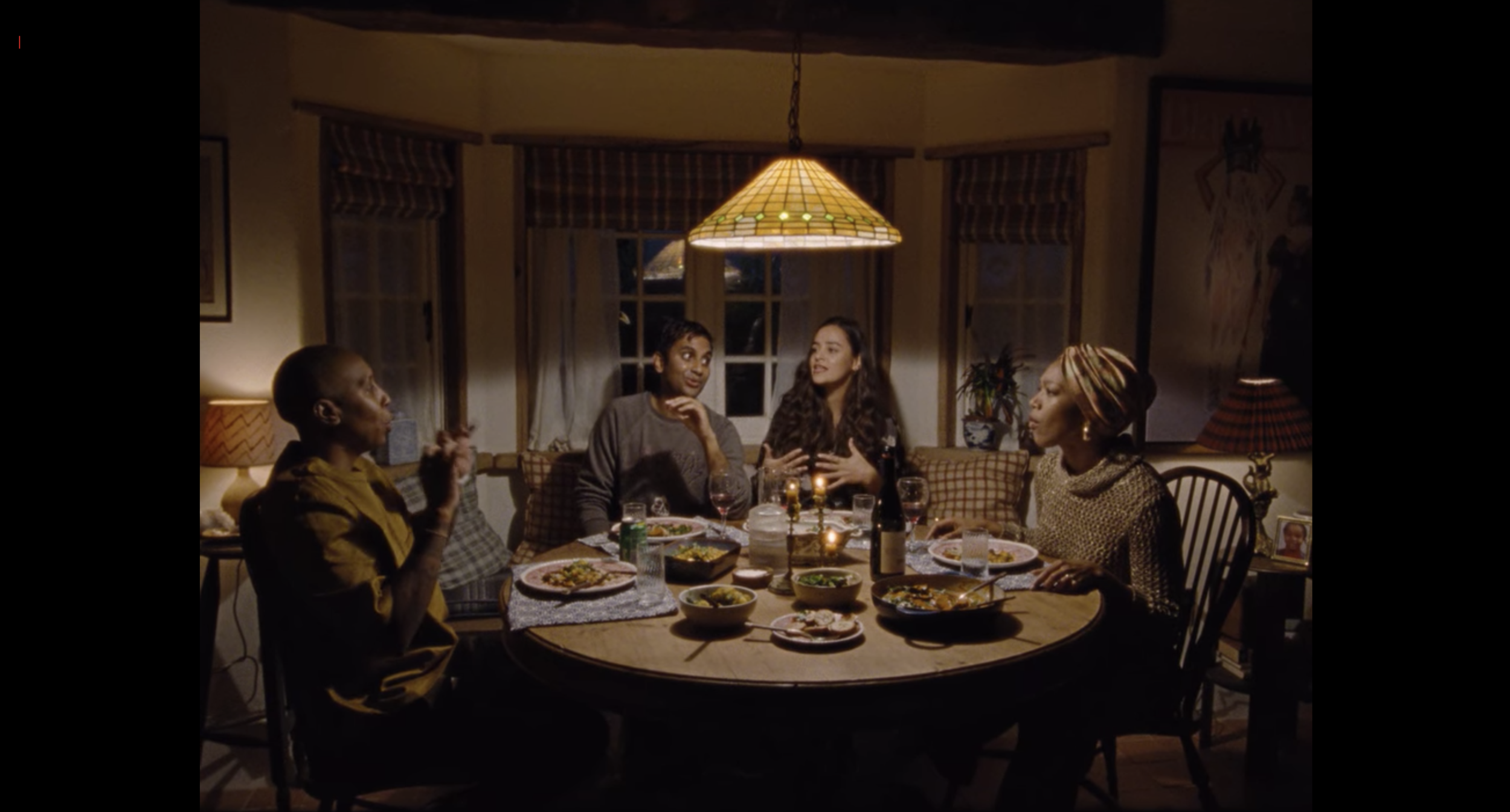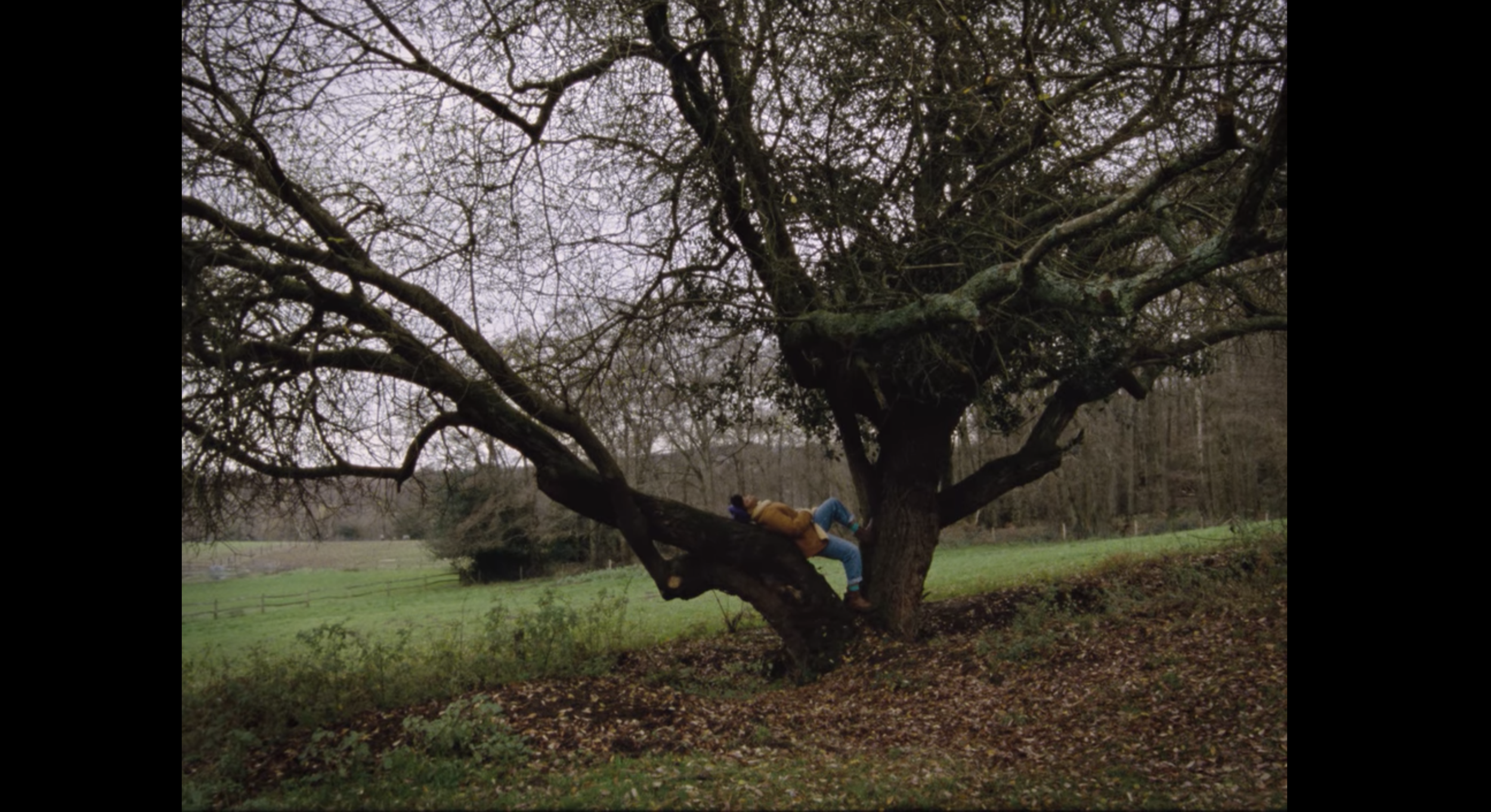Why the third season of Master of None had to be slow to be beautiful
Photo: Courtesy of Netflix ‘Master of None” Season 3
The third season of Master of None is nothing like the previous ones, that much I can tell you. It’s no longer about running around New York secretly eating steak during Ramadan or sipping Pinot Noir in bars with Tinder dates. It’s about slowly dying expectations and how it’s inevitable to be slapped speechless by the disappointments we face as we go through life. And the fact that as we strive to find whatever the hell our “purpose” is, we might lose people we care about along the way.
Gone are the feel-good moments in the Italian countryside that always made me reach for my Parm and cook Raviolis so small they shouldn’t be physically possible to make using a pair of adult hands. Gone are the modern dating life stories following Azis (sorry, Dev) around a bunch of awkward dates with both strange and not-so-strange women. But I welcome this radical change from comedy to drama (if you’re also a crier raise your hand.) Who said a TV show can’t change genre as seasons progress? I’d rather see it morph into something new than drag on for countless seasons filled with the same rusty jokes and recipes for easy ha-ha-has.
So don’t complain just because there’s no Clash of the Cupcakes and frankly, because Aziz Ansari keeps behind the camera rather than in front of it for pretty much the entirety of the five episodes.
This season of Master of None is not only different from the other seasons, it’s different from most films and TV shows out there – because it takes its time. It pauses on a shot long enough for you to absorb a feeling, not just hardly understand what’s going on, Tenet-style.
Not to mention that Ansari and co-author Lena Waithe – who also plays one of the main characters, Denise – have somehow managed to crack the puzzle of portraying real relationships between real human beings. Not fairytales infused with stereotypes to the point of becoming a parody of human nature.
This is something else.
Think Baumbach’s Marriage Story and exactly how sad it is to witness Adam Driver struggling to decide what takeaway to order while in a meeting with his and Scarlett Johansson’s divorce lawyers, and the tenderness that sips through when Johansson just orders his favourit dish for him. They might sit on a huge cushion of resentment, but that one gesture shows how nothing, absolutely nothing, about love is clear-cut.
I used to have a very linear view of romantic relationships. You meet, you fall in love, then you go through the ups and downs of life together while the relationship kind of tries to cling on to that rollercoaster ride until it reaches the end station; your mutual grave. But it doesn’t quite work that way, I’ve realized. Sometimes people split up, only to find each other again – for a third, fourth, or fifth time. Years might go by before two individuals come back to one another – under completely different circumstances – as is the case with Denise and Alicia, the main characters we get to follow.
This season captures that nonlinearity beautifully. We see two people who perhaps aren’t madly in love anymore, but who live a beautiful enough life doing things like folding laundry together while dancing to loud [hip] music. But things don’t stay warm and happy, because as in real life, they rarely don’t.
[Spoiler] Alicia’s miscargie becomes the ultimate test of the strength of their relationship and their ability to understand each other's experiences. And the fact that their experiences are vastly different doesn’t help – Alicia keeps accusing Denise of being indifferent and asks why she didn’t cry when they recieved the bad news. In the next episode, some time has passed, and we realize they’re now in the middle of a divorce. Later on in the season, the two of them have a heart-to-heart contemplating why their relationship fell apart, concluding that they just were at different moments in life.
I actually disagree with the character’s analysis of why their relationship failed. Sure, the timing sucked. Denise was dealing with the preassure of writing her second book and Alicia felt unseen and maybe a bit bored. The miscarige creates a toxic space between them, and they’re unable to find their way back to one another. Silence becomes a quiet by-stander until there’s literally nothing left to say.
[Spolier] Can we also talk about that brief Ansari appearance where he brings his girlfriend to Denise and Alicia’s house for dinner and the whole thing ends in a big argument between him and his new boo? Now that fight is just something else – it’s like watching someone twisting a wet towel and toxicity just keeps running from it like water. While the dinner starts out all cozy, things quickly escalte as the new couple (Dev and Reshmi) start to throw shit at each for their respective lack of professional success. Oh, and then there’s the mention of Dev’s reciding hairline and his unwillingness to use the drops.
To contrast with the complex situation facing the two queer women the season is centered around, we encounter this incredibly toxic heterosexual relationship that just steems with disappointment – in each other, in life, in oneself. A more sterotypically toxic relationship, it accentuate the many nuances of Denise and Alicia’s marrige – things aren’t prefect, but at least they’re not intentionally trying to hurt one another. And as far as it goes for supporting one another professionally, well, at least they kind of try.
Photo: Courtesy of Netflix ‘Master of None” Season 3
Then we have to talk about the way this season is shot. The grain of the 16mm film (also, I can’t stop asking myself how many filmrolls were wasted on re-takes) gives it both the atmosphere and the slowness that it needs. I don’t want to sound like a dick so I won’t use the word “poetry” but something similar comes to mind when I think about how the lense crops in on the characters, the house, and that pretenciously gorgeous upstate New York landscape (which turns out was actually filmed outside of London).
In a world that always spins faster than we can even absorb – I’m referring to the fact that most of us can’t be left alone at a table in a restaurant for three minutes without pulling out our phones and scrolling through our feeds, this is refreshing. The way Ansari filmed this season is slow, and some will probably complain that it’s too slow. But you know what – it’s just what we need to feel the feelings that are being felt on screen. It had to be this slow to be this beautiful or else our deteriorating attention spans wouldn’t be able to grasp it.
The long, static shots of winter landscapes, of vintage furniture filling the house, of the characters going about their daily business; it woudn’t be the same without the slow pase of the camera. The characters move in and out of the shot without the cameras following their every move – I welcome this calm because it allows me to actually take in the atmoshere and the vibes. So thanks for making us slow down a notch, Ansari.
Photo: Courtesy of Netflix ‘Master of None” Season 3
The timeline is another thing that sets this season apart from most TV shows. It is chronological, yes, but it’s the time gaps (sometimes years) in between each episode that so effectively adds layers to the story, simply because it allows Ansari to tell a lot – and squeeze in a lot of emotion – in little time.
This next section is a minefield of spoilers but don’t tell me I didn’t warn you. While the pace of the show is slow, the narrative is quick. In a matter of five episodes, Denise and Alicia divorce, Denise’s second book flops, they both meet other people, oh and Denise has a kid with this new lady who apparently doesn’t like the outdoors while Alicia copes with the difficulties of being a single, queer woman looking to conceive a baby through IVF. That’s…a lot. But it’s what’s needed to create complex characters who actually compare with what normal adults are likely to experience in those ”defining” years between becoming, or not becoming, a parent (read: your late thirties).
There’s a reason the movie Boyhood was filmed over 12 years – and it’s because it’s difficult to show and explain exactly who someone is without showing how they change over time, in accordance with the great and not so great experiences they go through.
While I do miss Dev and Arnold’s bromance adventures eating cheese and pasta against a backdrop of Italian countryside I guess we can all grow up – including TV Shows. As long as what you get in return is as beautiful as these 183 minutes of human mess and failure, I might just settle for that.


